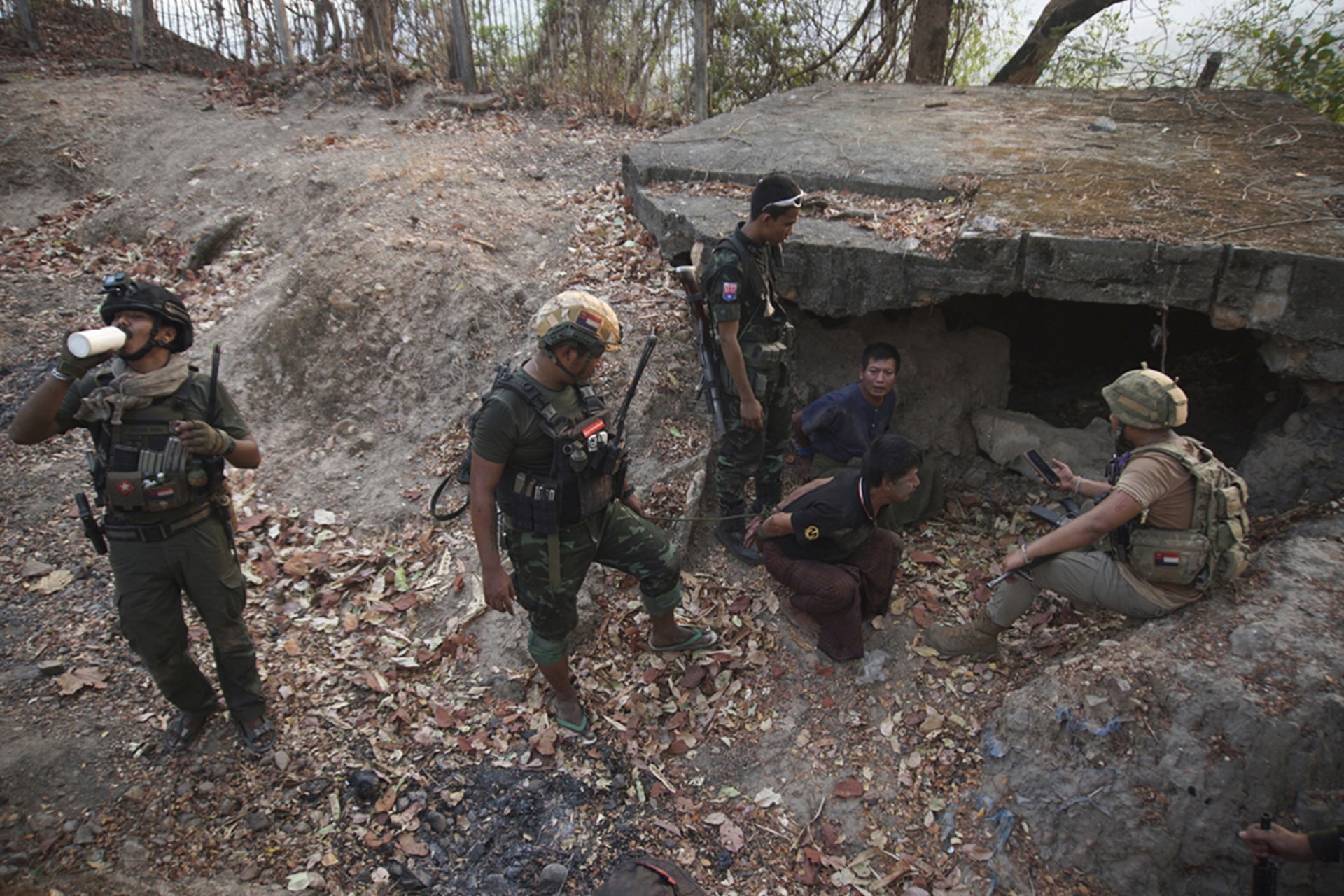Myanmar’s Military is Facing Defeat Amid Civil War
Myanmar’s military faced a significant loss in the town of Myawaddy, bordering Thailand, this week.

By experts and staff
- Published
Experts
![]() By Joshua KurlantzickSenior Fellow for Southeast Asia and South Asia
By Joshua KurlantzickSenior Fellow for Southeast Asia and South Asia
Already under siege on multiple fronts, facing defections and, reportedly, turmoil in some of the senior ranks of the armed forces, the Myanmar military, which has dominated the country, is now seeing its losses snowball faster and faster—with a possible endgame looming quicker than many imagined.
The opposition forces, comprised of a blend of longstanding ethnic armies that have strengthened their bonds and grown more audacious in confronting the weakening Myanmar military, alongside groups primarily consisting of ethnic Burmans who abandoned nonviolent resistance shortly after the coup, have achieved numerous significant victories in recent weeks. The opposition recently captured the Myanmar town of Myawaddy, right on the border with Thailand, just across a narrow river from the Thai town of Mae Sot, where many aid groups are already located. This gain facilitates a potential channel for aid (and possibly weapons) to be moved directly into opposition territory. (I’ve spent a good deal of time in Mae Sot, and as a border town, it is one of the most interesting places in Southeast Asia, with a Wild West feeling and always full of spies from various countries.) Primarily ethnic Karen rebels have seized the critical town and also claim that hundreds of Myanmar troops have surrendered—hardly an implausible claim, given that the number of surrenders and defections has been increasing in recent months.
The town would allow humanitarian groups and foreign governments to move nonlethal assistance into opposition-held territory much more efficiently via a direct link with Thailand, presuming the Thai government agrees—which is not guaranteed, but probably likely. More lethal types of aid could also be moved across at the same point. However, the United States has shied away from providing even items that could border on lethal aid, like satellite communications tools, to the frustration of some in Congress who have worked for years trying to support the opposition. Nevertheless, the opposition could now source weapons more easily across the border through various arms brokers—the Thai military can be a sieve, for instance, when holding light weapons.
Thailand’s prime minister has publicly said that the junta is weakening, a startling admission for a Thai leader when Thailand for decades has primarily tried to keep its hands off anything the Myanmar military did. He also denied the junta’s request to land aircraft over the border in Thailand while Myawaddy was being evacuated, saying that Thailand would allow some cargo to be offloaded in Thailand but not fleeing Myanmar army soldiers.
The opposition forces have also enjoyed a string of other recent triumphs, tightening the noose on the ruling junta. Since last October, a group of opposition forces, working together, have battered the military in northern Shan State, delivering a series of significant blows to the army, grabbing territory and forcing surrenders and defections. The Shan State offensive stretched the military and made it vulnerable in other parts of the country, where other opposition groups attacked—in places like Myawaddy or in western Myanmar, where the military faces a fairly fierce fighting force, the Arakan Army. The Arakan Army has already captured several major Myanmar junta battalions and claims that it has taken over several important Myanmar army bases and training schools in western Myanmar. The opposition even launched a bold drone strike, dropping explosives on the military’s supposedly fortress capital, Naypyidaw, which it carved out of the woods in the middle of nowhere in central Myanmar. It remains unclear what, if anything, the drones hit, but simply the fact that Naypyidaw was ambushed shows how the military’s intelligence—like all its components—is deteriorating.
With all these surrenders in various parts of the country, the opposition often depletes the army’s personnel and captures a wide range of weapons. The junta’s demise may be coming soon.
